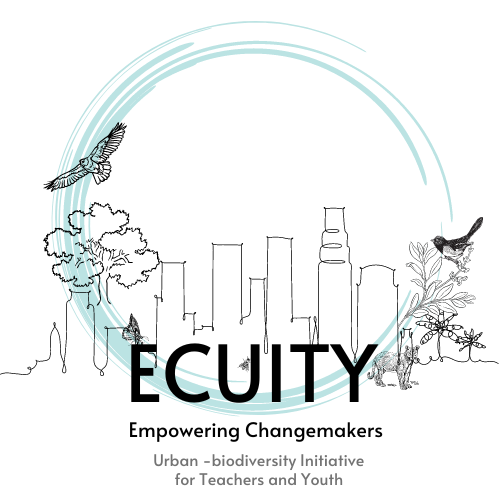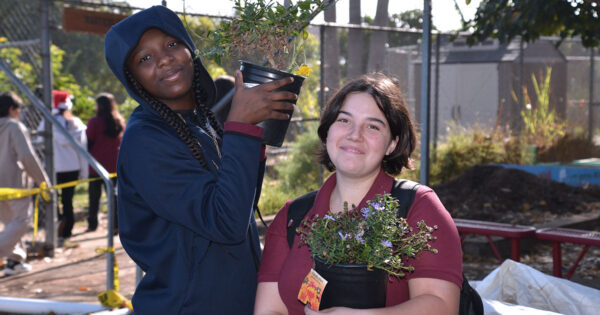Los Angeles faces significant biodiversity loss despite being a rich urban biodiversity zone. The city’s goal of zero net loss of native biodiversity by 2035 requires educational initiatives that prepare youth to understand and act on environmental challenges in their communities.
Purpose
This multiagency partnership works to ensure that teachers and students in Los Angeles have the knowledge to act in ways that promote zero net loss of biodiversity. The collaborative project designs, develops, and tests a research-based professional learning approach that equips teachers to (a) implement NGSS-aligned instruction, (b) facilitate student identification and understanding of biodiversity and sustainability issues in their local community, and (c) foster student capacity to take action. The partnership brings together the WestEd research team and the K–12 Alliance; the University of California; Los Angeles; and Los Angeles Sanitation and Environment to create learning opportunities that center on students’ curiosities and empower youth to become problem identifiers and solvers in their communities.
Audiences Served
Through this multiagency partnership, middle school teachers, students, and administrators across school sites in Los Angeles receive comprehensive support. The collaborative project ultimately benefits the broader Los Angeles community by developing environmentally literate youth who can contribute to the city’s biodiversity conservation goals.
Project Activities
This collaborative partnership conducts research-based professional learning for teachers and develops NGSS-aligned instructional materials focused on local biodiversity. Together, the partners facilitate collaborations between scientists and teachers to implement project-based science units and create a “playbook” of project tools and processes for broader implementation.
The project will gather data from multiple sources to determine the extent to which the intervention influences teachers’ and students’ understanding of and beliefs related to
- human impacts on the environment as identified in the NGSS,
- biodiversity and factors that influence it,
- sustainability issues, and
- identification and mediation of local problems through engineering design.
The project will examine how teachers’ implementation of NGSS, environmental literacy, and sustainability instruction related to local communities change over time. It will also examine how recipients of the intervention incorporate materials and pedagogy into their practice.
Teachers and Administrators: Access the Playbook Materials
Ready to empower changemakers in your school and classroom? Access the research-based, interactive instructional materials and professional learning resources here. Download the desired file and save it to your Google Drive to tailor the materials for your students and local needs.
- Instructional materials—including learning sequences, lesson plans, and worksheets for grades 6–8.
- Professional learning materials for introducing teachers to the learning sequences and exploring student sense-making.
- Other materials from the project, including administrator support tools are available online.
These materials are provided by WestEd and are for educational and noncommercial use only. When copying, adapting, or distributing these materials for instructional purposes, please provide the following attribution: “Original materials developed by WestEd and adapted for classroom use.”
View the Action Videos
These videos showcase real classrooms and professional learning moments, highlighting strategies you can use to empower changemakers in your school. Watch and share these videos to spark conversation, inspire practice, and support student sense-making.
Please note: audio described versions of these videos are currently in progress. Check back soon. If you have any trouble accessing the videos, please contact us.
Project Director
Funder
This project is funded in full by the National Science Foundation.
Project Duration
4 years (7/15/22–6/30/2026)







